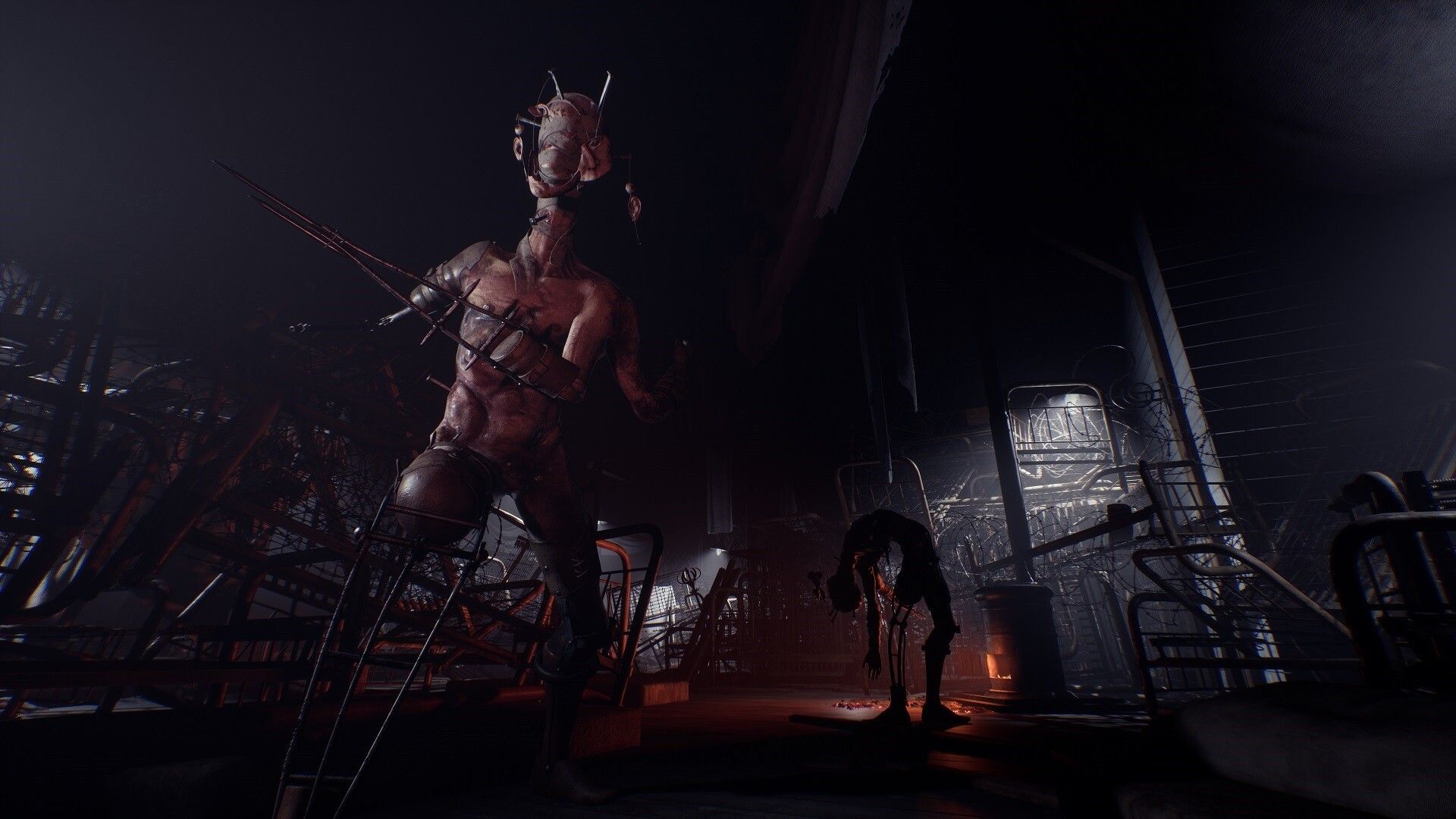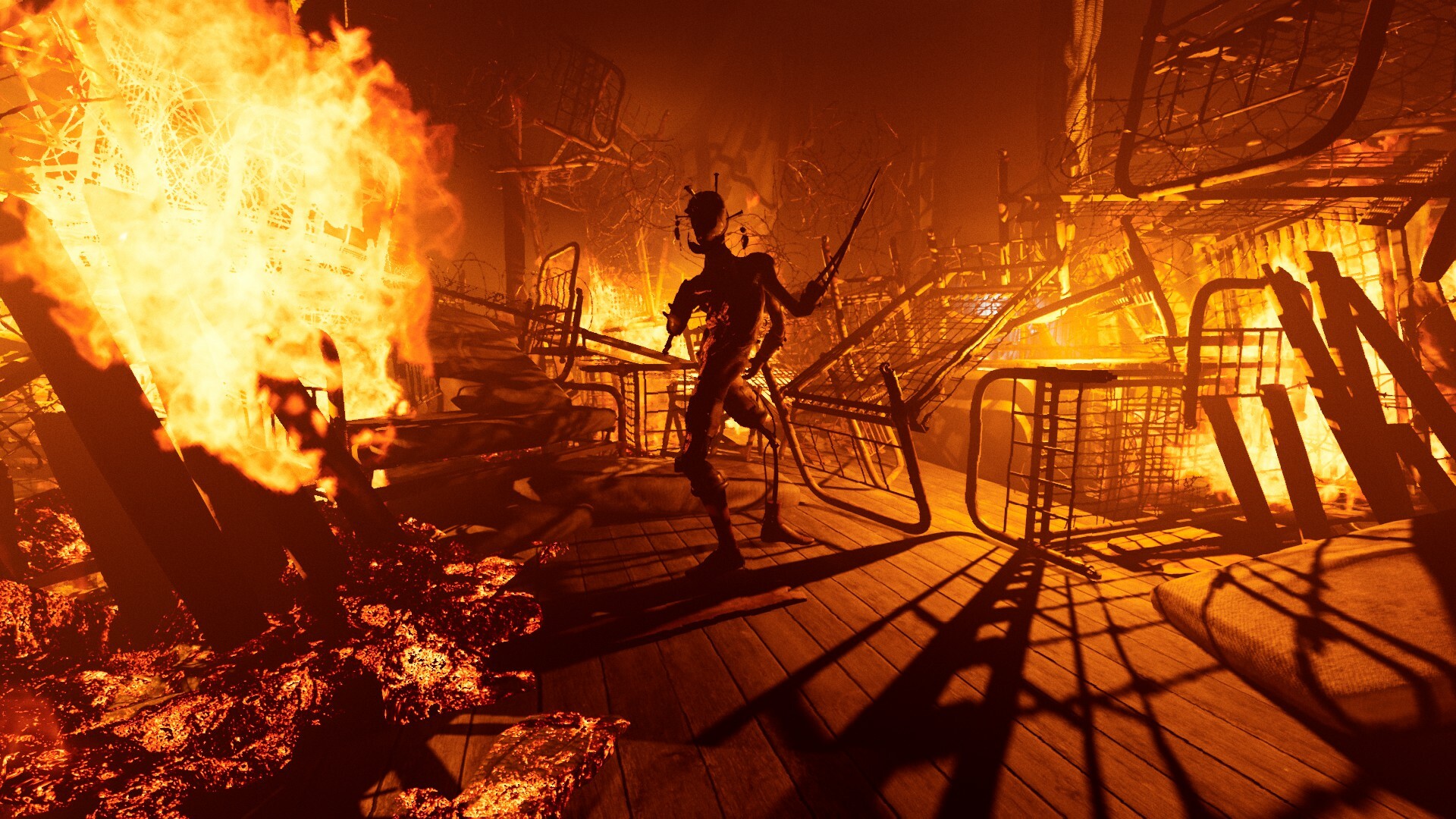Nacon’s Ad Infinitum, a horror thriller developed by Hekate, has much on its mind. It’s a family drama that reflects on the conflict between the main character’s mother and father that hits a little too close to home and the sporadic moments of joy with their brother. It’s a commentary on World War 1 from the perspective of a German soldier, from venturing through the trenches and hearing thunderous explosions all around to the death of allies in horrendous ways. It’s also deeply psychological, with the protagonist experiencing all these horrors in a never-ending cycle within their mind and attempting to break through.
Looking at all this, it may seem that the developer’s reach exceeds its grasp. While it balances these disparate themes and weaves a dark tale of family, war and loss, Ad Infinitum suffers due to the jankier elements of its gameplay, poor AI and lackluster horror. It’s not a complete failure so much as uneven and delivers some great visuals and voice acting to go with its solid but sometimes oddly matched soundtrack.
“A palpable atmosphere of dread is present at first, but it never quite reaches the heights of, say, the Amnesia titles.”
As the player wakes up in the run-down room of their childhood manor, there’s a smashed mirror in one corner while various paraphernalia scattered about bring back memories, good and bad. Venturing into the hallways reveals locked doors galore and the wails of something big and mean.
From the outset, Ad Infinitum is more of an adventure title, one where you locate items and solve puzzles. Some puzzles tend to get a bit more complex, like creating a chemical solution to melt a chain barring a door or searching through shelves for a key that can open a display case for an item that reveals a hidden safe, which requires a combination. There are some moments where you stop and ponder what to do next, with copious amounts of backtracking, but nothing too crazy. It’s very linear with very little experimentation as you’re just combing through the environment for that one thing you missed that’s necessary to proceed.
As you discover various documents, the war from the outside looking in contrasts heavily with its brutal reality as you’re transported through the trenches first-hand. Given the amount of voice-over done to convey the protagonist’s family, the voice acting is pretty decent. It’s nothing revolutionary, and the writing does an acceptable job of encompassing the eventual decline of the household (and the parents’ marriage).
For the most part, there’s a lot of searching and backtracking, trying to find what’s necessary to progress. A palpable atmosphere of dread is present at first, but it never quite reaches the heights of, say, the Amnesia titles. You’re not being hunted so much as uncovering and trying to make sense of your story with the occasional spooky entity here and there (and sometimes not even that).
“When caught by any of these creatures, you’re subject to a button-mashing sequence to escape. It’s easy to get locked into an animation when trying to crawl through an opening, resulting in your quick demise…”
That is until you’re transported into the trenches of The Great War. The gameplay takes on a considerable shift here, with elements like breaking through boards, crawling under barbed wire and tackling various monstrosities. “Tackling” is a strong word – there’s more sneaking going on, and running around to be had as you avoid making any sounds. Certain sequences warrant making noise and then sneaking past, though this highlights the game’s overall jank.
When caught by any of these creatures, you’re subject to a button-mashing sequence to escape. It’s easy to get locked into an animation when trying to crawl through an opening, resulting in your quick demise…but then you’re respawned past the checkpoint anyway. Other areas showcase how uneven the AI can be, especially when it suddenly lunges at you from behind a curtain without any kind of hint of being spotted. Other times, it’s completely oblivious to your walking just a few steps near it as it munches on some remains.
There are bigger boss-like horrors to tackle, though their encounters are more puzzle-focused. One such encounter involved fleeing from a monster and activating three gramophones. You could go with evil music or good, and the decision had long-standing consequences (because the game outright tells you). After that, you activate a single switch and then conclude the fight.
There isn’t much tension to any of this, as the monster has a set radius within which it can pursue you. It leads to some ridiculous moments where you walk into its detection radius, watch it lumber towards you as the music swells and then back out, upon which it returns to casually strolling around. It’s an odd sight, for sure.

“Overall, it’s hard to get a bead on Ad Infinitum. There are horror elements, for sure, with some of the creatures coming across as grotesque…”
Still, there was a lot to glean from wandering the trenches, whether it was the blinded soldier who begged for morphine to ease the pain, gathering the dog tags of the fallen or discovering documents about various atrocities committed on the battlefield. The photos, letters and reports crafted a grim picture of it all and made me want an adventure game solely focused on the war and its soldiers.
As noted before, Ad Infinitum is a good-looking game, whether it’s the environment and its dilapidated textures, the lighting and shadows or the texture quality. The animation for some of the creatures could be better, as they come off looking more uneven than otherworldly or terrifying, especially in the close-up sequences.
There are some pop-in issues, which got especially egregious in one part where an entire area suddenly loaded in, but overall performance is fine. The music is composed well, though there are times when it feels unnecessary, diminishing any feeling of tension. It did reinforce the feeling of playing through a dark thriller instead of a horror title, for whatever it’s worth.
Overall, it’s hard to get a bead on Ad Infinitum. There are horror elements, for sure, with some of the creatures coming across as grotesque, but you’re not bombarded with jumpscares or subject to mounting tensions in the dark while managing your resources. Sometimes, it can border on a walking sim (well, running, if you feel like it). At others, it’s more rudimentary stealth with some light puzzle-solving.

“Did I expect much more beyond this? Not really, but there’s no denying that what’s here is very straightforward when it doesn’t feel overtly janky or uneven.”
To that end, much of your enjoyment will come from the story and atmosphere as you attempt to unravel the threads governing your identity. Perhaps you make peace with the never-ending cycle of psychological torment, discovering why you’re stuck in this purgatorial loop. The visuals could draw you in as you admire the environmental details, even as you comb over the same annoying locked doors for the nth time.
The horror feels more like an accessory than the main selling point at times, but this still isn’t an experience for the faint of heart. Ad Infinitum lacks polish in other areas, making it an even tougher sell for those seeking thrills. It’s serviceable and even enjoyable when you get into it, yet entirely above average.
This game was reviewed on PC.